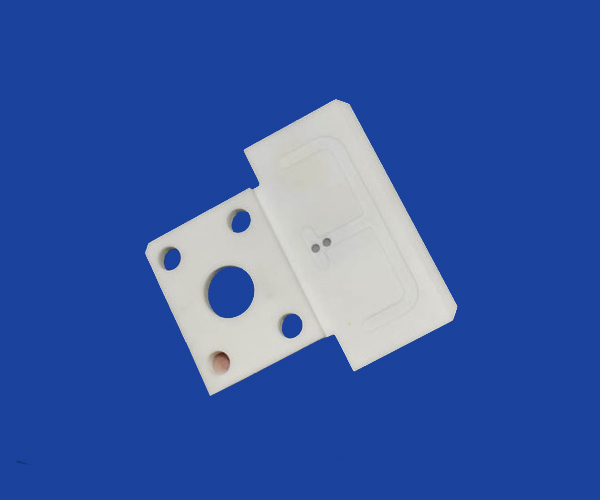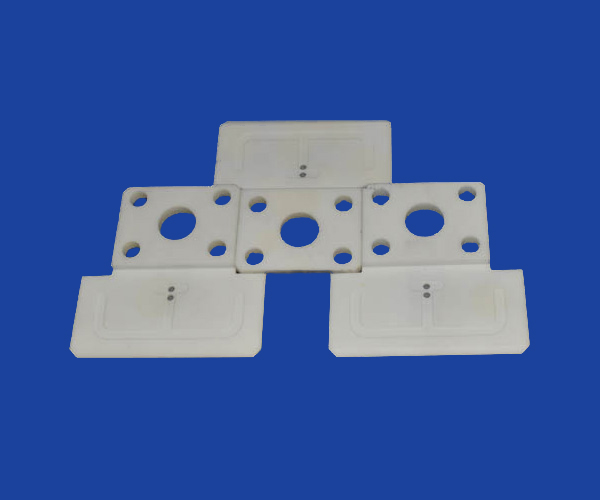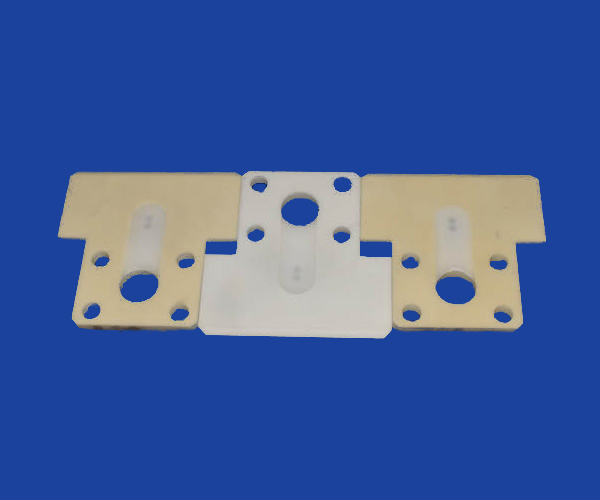E-mail:admin@cerampart.com
Zirconia Alumina Ceramic Parts For Solar Photovoltaic
- Materials:Alumina (Al2O3)/ Zirconia(ZrO2) /Si3N4 /SiC ...etc
- Sizes:Custom according to the drawings
- Delivery times:2 -25 days(depends on the quantity)
- Precision:Ra 0.1um tolerance: 0.001mm... etc
- Features:Heat resistance / Wear resistance / High purity / Refractory / High Corrosion / Good Insulation...
Zirconia Alumina Ceramic Parts For Solar Photovoltaic
Amorphous silicon solar parts were deposited on porcelain stoneware tiles in order to develop a fully integrated PV building element. In a previous work we demonstrated the feasibility of adopting porcelain stoneware tiles as thin-film solar cell substrates and we fabricated 1×1cm2 solar cells on [industrial-level" ceramic substrates showing more than 4% efficiency.
In this study we focus our attention on larger area (7cm2) devices deposited on 100cm2 tiles. As the active area increases additional problems arise from the surface of the substrate. In particular we find that short-circuit paths originate from the unfavorable properties of the substrate tiles (roughness, porosity, etc.) having dramatic consequences on the performance of larger area devices.
With the assumption that spot-like regions, in which the back layer and the front layer are in electrical contact (local short-circuits), are present all over the device, we propose a new device structure to overcome the substrate drawbacks. A new contacts arrangement was designed in order to minimize the shunting effect of short-circuit paths. As a result an initial efficiency of 2.5% has been obtained using the new device structure for 7cm2 devices deposited on a 100cm2 PV mini-module tile.
Materials:
| Property | Alumina | Property | Zirconia |
| Bulk density(g/cm3) | 3.85-3.93 | The density (g/cm3) | 6.05 |
| Hardness(HRA≥) | 86 | Bibulous rate(%) | 0 |
| Bending strength(Mpa≥) | 300 | Thermal expansion coefficient(10-6 /k) | 10.5 |
| Maximum service temperature(℃) | 1500 | Young's modulus of elasticity(Gpa) | 210 |
| Linear expansion coefficient(×10-6/℃) | 7.15-7.67 | Poisson's ratio(/) | 0.3 |
| Dielectric constant(εr(20℃,1MHz)) | 9.21 | Hardness (MPa) | 1200 |
| Dielectric loss(tanδ×10-4,1MHz) | 2.5 | Bending strength (MPa) | 950 |
| Volume resistivity(Ω·cm(100℃)) | 9.2*1016 | The bending strength (MPa) | 210 |
| The compressive strength(Mpa≥) | 2500 | Compressive strength (MPa) | 2000 |
| Flexural strength(Mpa≥) | 200 | Fracture toughness(Mpa.m1/2) | 10 |
| Modulus of elasticity(Gpa) | 300 | Thermal conductivity (W/m.k) | 2 |
| Poisson's ratio | 0.2 | Specific resistivity(Ω.mm2/m) | >1015 |
| Thermal conductivity Coefficient(W/m·K(20℃)) | 20 | Maximum service temperature(℃) | 1350 |
| Dc breakdown strength | 43.7 | Acid and alkali corrosion resistance(/) | strength |
| Tensile seal strength(Mpa) | 104.4 |
|
Properties :
1. High Hardness wear resistance
2. High precision 3. Good mechanical strength 4. High temperature and chemical resistance 5. Electric insulation 6. Low thermal expansion 7. Smooth surface finish 8. Thermal Shock Resistance Material :
1. Alumina ceramic
2. Zirconia ceramic 3. Silicone carbide 4. Silicone nitride Lead-time: 20-30 days for mass production, 7-15 days for samples. |
||||||||||||||||||||||||
Dongguan Mingrui Ceramic Technology Co., Ltd.
TEL:+8618122974730
MB:+86 181 2297 4730 Tel:+86 746 3386888
Skype:+86 181 2297 4730
Email:admin@cerampart.com
ADD:No. 21, Chuangxing Road, Shangsha Second Industrial Zone, Chang'an Town, Dongguan City




 HOME
HOME WHATSAPP
WHATSAPP CONTACT
CONTACT TEL
TEL